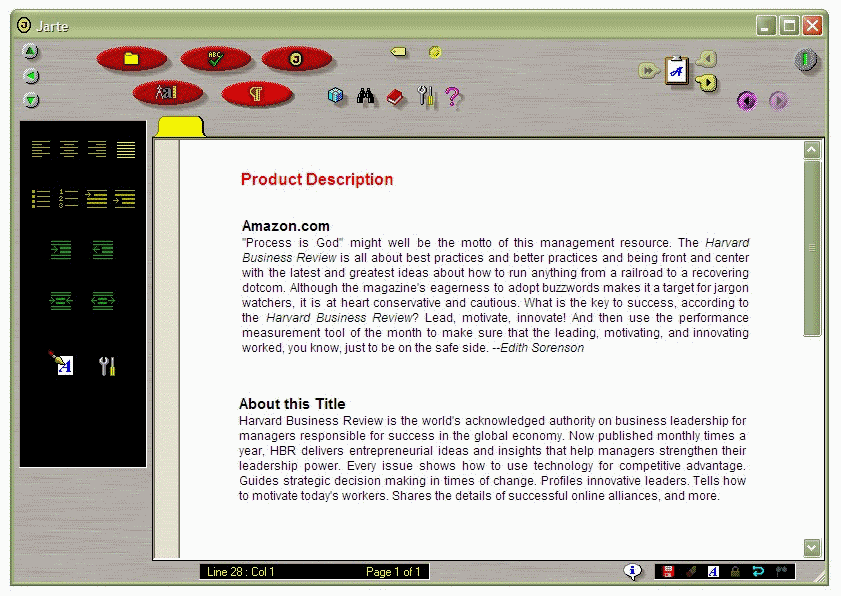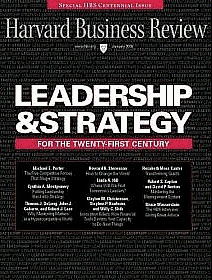
Success in the Secular World
- Happiness
- Achievement
- Significance
- Legacy
To Stevenson and Nash, "happiness" was defined as "feelings of pleasure or contentment about your life", while "achievement" meant "accomplishments that compare favorably against similar goals others have strived for". "Significance" is a term that the person-in-the-street normally won't think about (as in a "top-of-the-mind" recall) when thinking about success, and, as used by Stevenson and Nash, the term meant "the sense that you've made a positive impact on people you care about". Finally, "legacy" is "a way to establish your values or accomplishments so as to help others find future success".
Hear is what the HBR report concludes with:"Unless you hit on all four categories with regularity, any one win will fail to satisfy. People who achieve lasting success tend to rely on a kaleidoscope strategy to structure their aspirations and activities."
The report then explained the process (the "how") of building your personal "kaleidoscope framework", where you set which "tasks you should undertake to fulfill the different components of success and uncover areas where there are holes".
This process or framework "can also help you make better choices about what you spend your time on and the level of energy you put into each activity". To Stevenson and Nash, "successful people who experience real satisfaction achieve it through the deliberate imposition of limits". In other words, it may not always be ideal or optimal to achieve the maximum in all four components of success simultaneously or all the time. Thus, to achieve "success that lasts", you must learn to balance and even "limit" achievements in one or more components, in order to channel energy to achieve success in the other components. Instead of trying to 'get more of everything', Stevenson and Nash concluded that the 'just enough' strategy is the cure for the 'get more' addiction.
I notice that this addiction for 'geting more' applies not only to material things or comforts, but also to power and control. There are, after all, clearly those who are power junkies and control freaks, as well as those who binge constantly on food, sex, drugs, and material goods of one type or another. Many people are also what one may term, experience junkies, always seeking out the next thrill and ride.
The approach that Stevenson and Nash used is prevalent in the ivory-tower academic world of the universities and colleges, and perhaps also of some private-institutional or government-institutional 'think tanks' (an almost obsolete term of the 20th century). But it is definitely, specifically and especially prevalent in business schools of whatever flavor, type, specialisation and standing you can enumrate.
Listen ... years ago when I was in a business school, I experienced a shudder when I happened to walk pass the open door of a lecturer-or-professor -- and there inside the room was one of my harried-female classmates standing haplessly next to the male-dominant lecturer-or-professor, who was hurriedly or impatiently flipping through pages and pages and more pages of computer printouts that my unlucky classmate had brought to him. The intense impression I got, which stayed with me to this day, was the selective use of so-called "evidence" to bolster up some favorite theory or model regarding a certain behavior (or process or event) of the real business world that was apparently being "studied" -- and, of course, conveniently rejecting evidence that did not support the favorite theory or model. To me, this was clearly an example of what Nobel laureate Richard Feynman called "cargo cult science".
In the scientific world, you don't seek to "prove" anything, really! Instead, you seek to disprove your favorite theory or model, which is why you couch your theory or model in the form of a falsifiable, disprovable hypothesis. That way, you are not seeking evidence to "prove" anything -- but you are seeking evidence to disprove your favorite theory, model or hypothesis. The true scientists of the hard sciences know that the easiest person to fool is themselves! That is why they also insists that other true scientists verify what they think they have discovered. If something is not verifiable, it is not true science.
Of course, all this doesn't always obtain, naturally -- even scientists are humans after all, with their need for recognition, achievement, appreciation, success, and perhaps even an eye on the Nobel prize, eh? But the business academics and other "researchers" in the so-called social "sciences" and "the arts"??? Wow! What a self-delusional 'cargo-cult scientific' approach many of them (not all, of course) use! Thankfully, I got out of all that after that zen-type, epiphany-of-a-sort, drive-by (or walk-by) encounter.
Thank God!
Halleluyah!
'Nuff said!

Advertisement
Web Masters/Authors!
Get paid on 100% of your website traffic, no clicks necessary! How is this possible?
<< CLICK HERE(video) >>
Or: << HERE (details)>>
Or: << HERE (signup)>>
Or: << HERE (mainpage)>>

